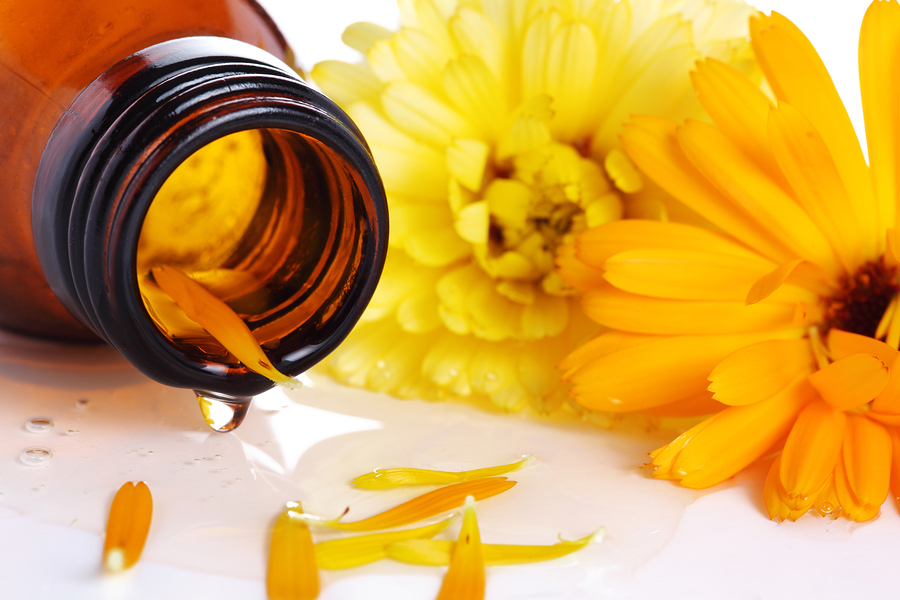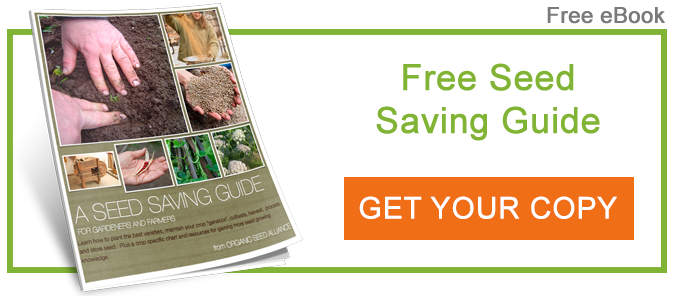Herbal Alternatives to Over-the-Counter Drugs
As you more than likely know, some over-the-counter medications and prescription drugs consist of synthetic chemicals that damage the body and only mask the symptoms of the underlying problem or disease. But there’s a great alternative that is simple to do and much less expensive. Making herbal remedies like tinctures and salves is one of the easiest crafts to learn, in my opinion.
The most difficult part is acquiring the knowledge about which herbs are used to remedy different conditions, and then learning to identify each of those herbs. There is a plant available in nature to heal every ailment that man has.
Learning about Herbal Remedies
I personally have been learning this art for years for my own family. So I decided to replace my family’s over-the-counter medications with herbal remedies. I was able to find a good substitute for each medicine, and I got them all ready in only about a year.
Tincturing herbs is not hard but it does take some time. Soaking takes about six weeks for leaf and at least eight weeks for seeds, roots, and barks. Soaking time may vary from person to person, and from plant to plant. These are just the general guidelines that I use. Topical salves for wounds are also very easy to make.
Herbs for the Immune System and Stomach
I have become an avid maker of elderberry products for my family – kids love it! Elderberry is a great immune stimulant. If someone in your family has a cold, elderberry syrup can be used every few hours to shorten the duration of the cold.
Ginger syrup is also easy to make, and it’s great to have on hand for tummy troubles. I like to use it in cooking as well, in stir fries and Indian dishes when I want that sweet ginger flavor enhanced and intensified.
Herbs for Pain Relief
Acetaminophen (Tylenol™, Anacin™, etc.) is overused in this country, and it can be very harmful to the body – especially the liver. I make an anti-inflammatory tincture using turmeric and wild yam that is an excellent alternative to acetaminophen. With this combination, you can even just encapsulate the dried herbs, and swallow the capsule to relieve your pain.
For bruises, aches, and pains, arnica is a great anti-inflammatory and pain reliever. You just apply it topically as an ointment, cream, or salve. Arnica is especially good for muscle pain.
Making An Herbal Tincture at Home
When tincturing herbs, I recommend using potato vodka – unless someone in the family has issues with alcohol, or you are going to give the tinctures to children on a regular basis. In those cases, I would recommend using glycerin. Generally, I feel that alcohol-based tinctures are more effective than glycerin-based tinctures.
To make a tincture, fill any size mason jar half way full with your desired herb or a combination of herbs. Fill the jar the rest of the way with vodka or glycerin. Allow the jar to sit for the appropriate length of time (can vary depending on the herbs and solvent used, and by application). As I mentioned, my rule of thumb is 6 weeks for leaf, 8 weeks or longer for roots or barks. I use a cool, dark cabinet; and I give them a turn over to mix the herbs at least once a week – more if I remember.
Remember to label each bottle with the contents and the date you started it, otherwise it is easy to forget – especially when you have multiple batches tincturing at once.
After soaking time has elapsed I strain the herb from the liquid, placing the herbs in my compost and placing the tincture in amber bottles with droppers. Again, remember to label each bottle with the contents and date.
Here are some examples of herbs that my family uses in this way on a regular basis, meaning daily:
• Astragulus/Ashwaghanda: This is a great adaptogenic herb combination, helping the body cope with everyday stresses.
• Nettle: Great for inflammation, building red blood cells, and allergies.
• Hawthorne: Great for the heart, by regulating blood pressure; both high and low.
• Hops: Sleep
• Kava Kava: Anxiety
• Valerian Root: Anxiety
• Horsetail: Strengthens hair and teeth
• Black Walnut, Wormwood and Cloves: This is used for parasites.
Making an Herbal Salve at Home
Salves are also necessary remedies that are easy to make. Goldenseal is an excellent alternative to Neosporin™ and I find it is a superior product as well. Calendula is great for dry skin, wounds and rashes. Arnica, mentioned above, is great for pain. St. John’s wort is good for minor injuries and burns. And Sassafras for poison ivy. The possibilities are endless.
Making salves is very simple. Start by constructing a double boiler on the stove top. Place coconut oil, sesame oil – or some oil that benefits the skin and is a good carrier oil for the desired herbs – into the double boiler, and add the herbs. Simmer slowly for 30-60 minutes; the longer the better, but do not burn or scorch the oil or the herbs. When this is complete, strain the herbs through a cheese cloth, retaining the oil infusion and discarding the herbs for compost.
Using the double boiler once again, shave beeswax into the bowl and place over low heat. Add your herbal oil infusion to the beeswax and stir to combine completely as the beeswax is melting. Once combined, you are ready to pour your salve into storage containers. I prefer glass jars to metal tins; it is just too messy for me to attempt to get salve in such a shallow dish.
There are many YouTube videos explaining how to make salves in a myriad of ways. This is just the easiest for me and it works well too. Creating new types of salves is fun and allows you to get your creative juices flowing. This type of procedure works well for lip balms too.
Herbs and Over-the-Counter Medicines
Herbs are a gift that should be cherished, respected, and utilized by all of us. Every herb has a use, and learning what those uses are has been a beautiful experience for me. It is empowering to be able to heal oneself.
I have found alternatives to every over-the-counter medicine my family used, and I believe that the natural herbal remedies are far safer for me and my family. Herbs are a gift from Nature, and we can feel as if we are being gifted everyday of our lives if we choose to see this fact. I choose to, and I hope that you do too. Stay Healthy Friends!
Thanks to Bonnie Spiker for participating in the [Grow] Network Writing Contest.
We’re still getting the list of prizes lined up for the Spring 2016 Writing Contest. We awarded over $2,097 in prizes for the Fall Writing Contest, including all of the following:
– A 21.5 quart pressure canner from All American, a $382 value
– A Survival Still emergency water purification still, a $288 value
– 1 free 1 year membership in the [Grow] Network Core Community, a $239 value
– A Worm Factory 360 vermicomposting system from Nature’s Footprint, a $128 value
– 2 large heirloom seed collections from Baker Creek Heirloom Seeds, valued at $103 each
– A Metro-Grower Elite sub-irrigation growing container from Nature’s Footprint, a $69 value
– 2 copies of the complete Home Grown Food Summit, valued at $67 each
– 3 free 3 month memberships in the [Grow] Network Core Community, valued at $59 each
– 4 copies of the Grow Your Own Groceries DVD video set, valued at $43 each
– A Bug Out Seed Kit from the Sustainable Seed Company, a $46 value
– 4 copies of the Alternatives To Dentists DVD video, valued at $33 each
– 4 copies of the Greenhouse of the Future DVD and eBook, valued at $31 each









COMMENTS(7)
I could not agree more with Bonnie, and thank you for this wonderful and informative article regarding herbal remedies. I have been blessed with pretty good health and have only taken one type of OTC for the last 60 years. I used to suffer from gout and took an insane and unhealthy amount of naproxen sodium (Aleve) just to keep it in check and get through a 3-5 day gout attack. After a lot of experimenting with various natural remedies, I landed on just two that REALLY seemed to make the biggest difference. Apple Cider Vinegar (1 Tbs, 3x daily) and Turmeric (1 Tbs daily – in a soup, stew, tea … whatever). These two have completely eliminated my bi-monthly gout attacks and rendered me 100% OTC free. Instead of suffering the negative side affects of Aleve (or any other NSAID), I have actually experienced a myriad of beneficial side affects from ACV/Curcumin like improved digestion, lower cholesterol, lower blood pressure, increased energy levels and more.
Thank you for the information. We had a friend go to Emergency because his hand became swollen, red, and very sore. Immediately, the person in Emergency told him he had gout. He never had these symptom before. They didn’t do any testing on him, just prescribed naproxen. He doesn’t have the symptoms anymore. The only thing he felt could have caused the symptoms was catching a slipping snow plow with his bare hands. It’s terrible how our health care providers depend on pharmaceutical drugs when mother nature has a solution for health issues.
My husband is disabled and takes a handful of medicines for pain. Could you tell me how to get capsules, wild yam to make this –tincture using turmeric and wild yam? I have ground organic tumeric in a jar. Thanks!
Jeanette, Mountain rose herbs has just what you need – https://www.mountainroseherbs.com/search?page=1&q=yild+yam&utf8=%E2%9C%93. Get those in powder form for both encapsulated and tincture. If you aren’t familiar with this company, you may fall in love. Good Luck to you and you husband. Warmly, Bonnie
Thank you very much for the wonderful information.
I paid for an ebook about a month ago and you guys refuse to send me a password. Is this a scam website or it’s legit? There is this person Jamie Jones (probably a fake name) who is playing tricks on the email with me.